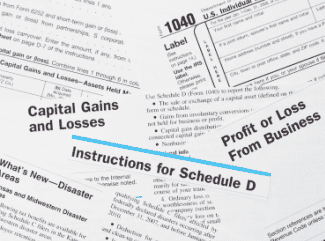Loan Mod May be Better Than Selling
by Bernice Ross, Inman NewsDEAR BERNICE: I need some advice to know what to price my home at when we do sell. We got an appraisal on our property and it said we lost more than $100,000 in value. Is there any way to sell it for what we paid for it? My husband thinks if we refinance our home we could sell it for what we paid for it originally. Is that true? –Rachel D.
DEAR RACHEL: The price you paid for your property has no bearing on what it is worth right now. A good analogy is the stock market. If I paid $100 for IBM stock and today it’s selling at $60, I would have to settle for $60 a share if I wanted to sell today.
Refinancing won’t change this situation. If your appraisal came in low, lenders will refinance your property based upon the current appraised value only. The only way to sell the property for what you paid is to wait for the market to improve.
In July, the Obama administration asked the nation’s largest lenders to modify at least 500,000 loans by the end of 2009. If you are selling because you’re facing hardship, you may be able to obtain a loan modification from your lender. The first step is to document your hardship in the form of a hardship letter. (Click here to view some samples of hardship letters.)
Loan modifications can be a wonderful solution for a distressed property owner. Bankruptcy and foreclosure are usually the most damaging to your credit. Giving the lender the keys back to your property (called a “deed-in-lieu of foreclosure”) may be somewhat less damaging. Loan modifications are usually the least damaging of all these options.
In a loan modification, the lender may lower the interest rate to as little as 1 or 2 percent. This results in a dramatic drop in your payments making it easier for you to stay in your property. For example, if you have an adjustable-rate mortgage (ARM) and it readjusts to 9 or 10 percent, the lender may lower your existing mortgage rate to 3.5 percent for five years and then raise it to 6 percent for the balance of the loan.
In other cases they may allow you to pay off the loan over 35 or 40 years as opposed to 30 years. (This may be a bad idea for you because it generates huge amounts of additional interest for the lender.) On rare occasions, the lender may even consider a principal reduction.
The two key requirements the lender wants to see are that you plan on staying in the property and that you have sufficient income to keep making the payments. Some loan modification programs have a three-month trial period. If the borrower keeps up the payments during the trial period, the loan modification becomes permanent.
Sadly, the loan modification business has attracted a high percentage of rip-off artists. Do not go to any place advertised on television or radio. Most of those services are rip-offs.
The best place to start is with your lender. Ask for the loss mitigation department, not customer service. Before contacting the lender, it’s important to be prepared for the questions you may be asked. The best way to approach this is to obtain an online mortgage application and print it out. Complete each of the items on the application including all loan numbers, credit-card numbers, addresses of property owned, plus a list of all other assets.
You will also need bank account numbers, W-2 forms or other income tax documentation, and property tax data. If you are self-employed, you will also need a current profit and loss statement. To have a fuller understanding of the process, you can visit the FDIC site, which discusses loan modifications in more detail.
If you’re thinking about selling, interview three Realtors who have experience working with short sales. When agents tell you that they specialize in short sales or distressed properties, ask for referrals from past clients as well as the addresses of the properties they have closed most recently. If the agent cannot supply that information, keep searching for someone who can.
Before you make any decision, however, please check with your accountant or tax attorney to see how your decision will influence your tax situation. For example, if you refinanced or placed a second (or third) mortgage on the property, you may be subject to “imputed income.” In other words, if you refinanced your home to pay off your car and credit-card debt and the lender relieves you of the duty to pay that money back, the IRS views that as taxable (imputed) income. On $100,000, that could be more than $35,000 in federal taxes owed.
PLEASE, do not shortcut any of these steps. The consequence of doing so can be devastating. Good luck!
Bernice Ross, CEO of RealEstateCoach.com, is a national speaker, trainer and author of “Real Estate Dough: Your Recipe for Real Estate Success” and other books. You can reach her at [email protected] and find her on Twitter: @bross.















 Accessibility
Accessibility